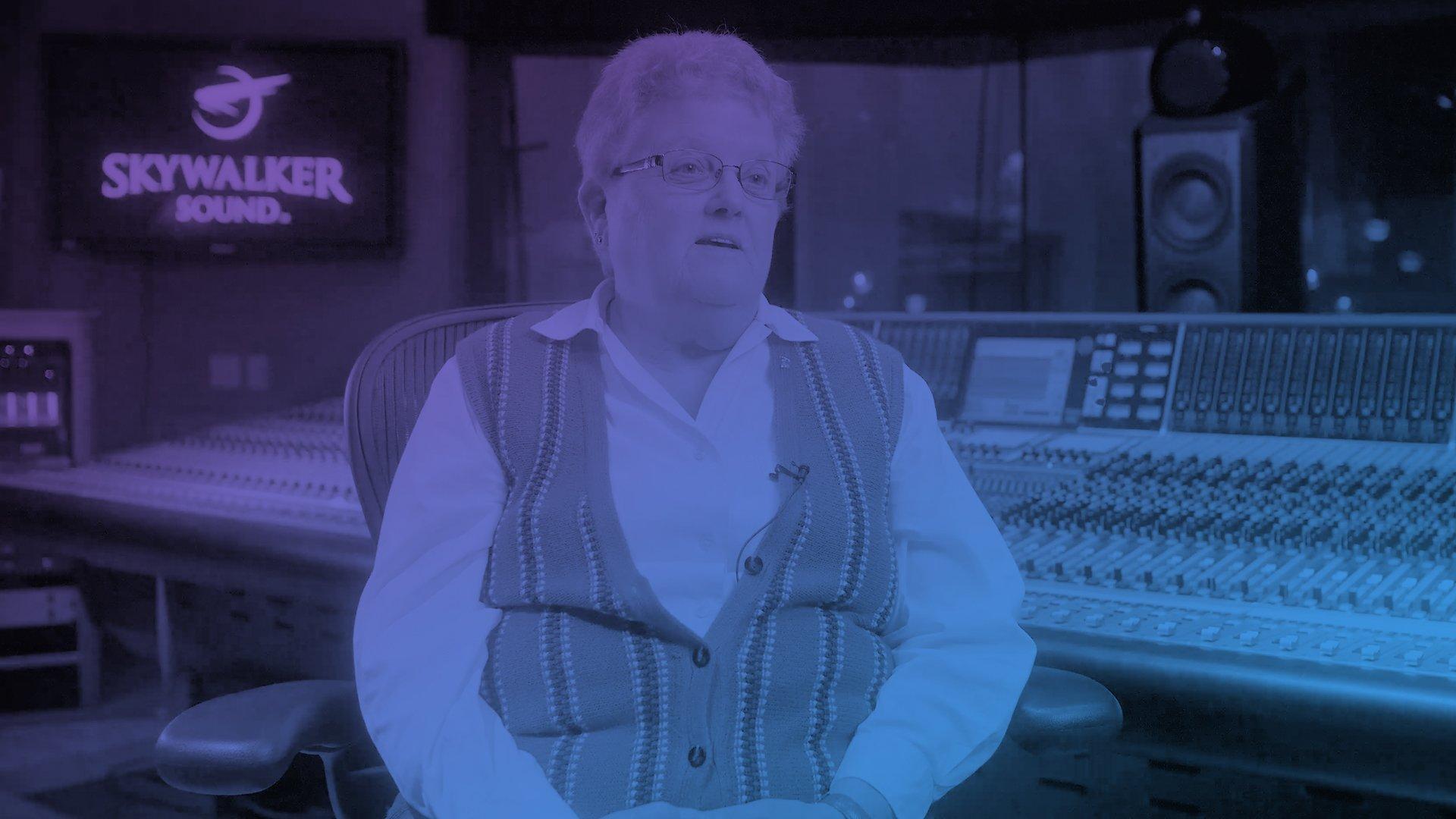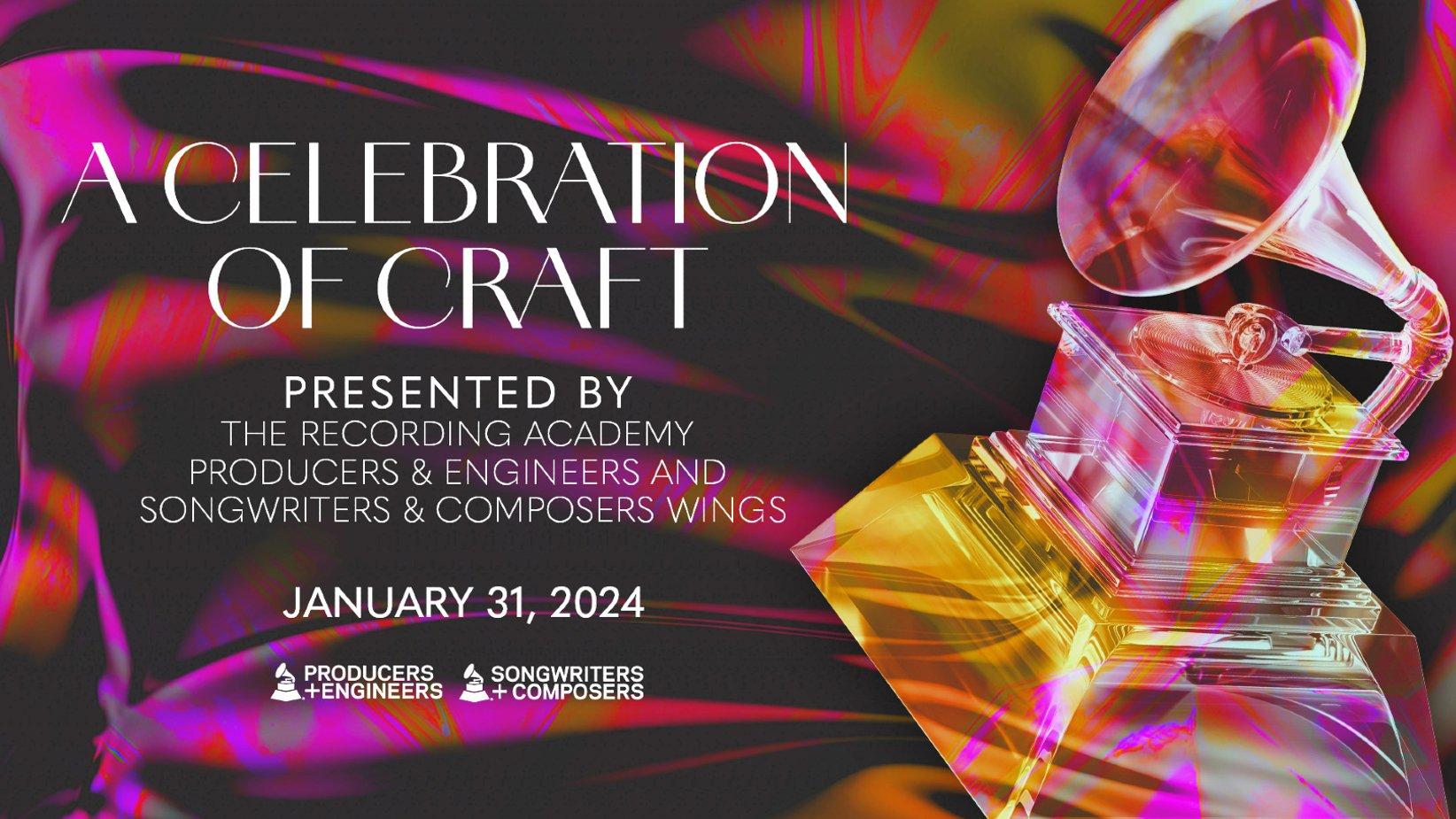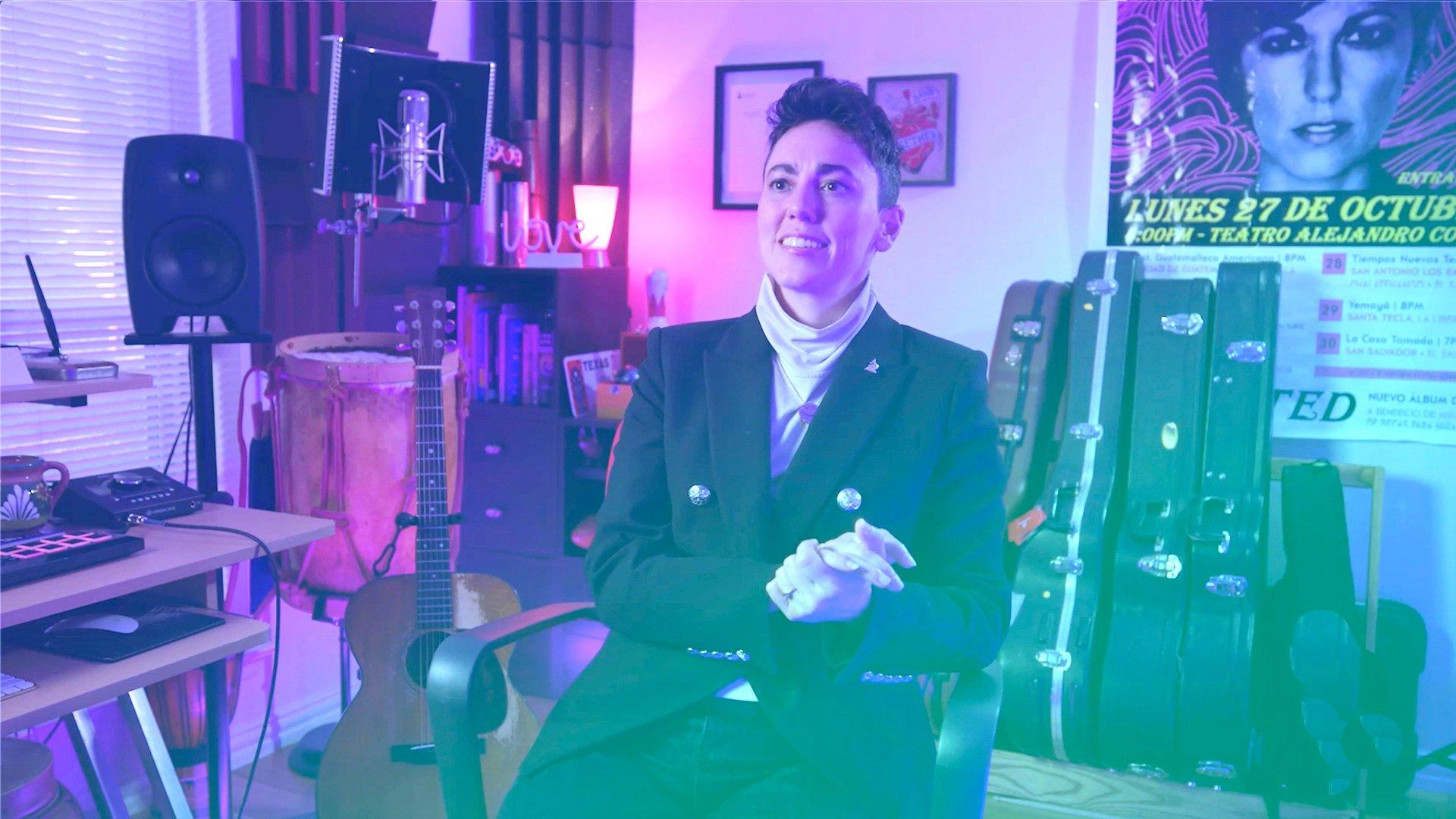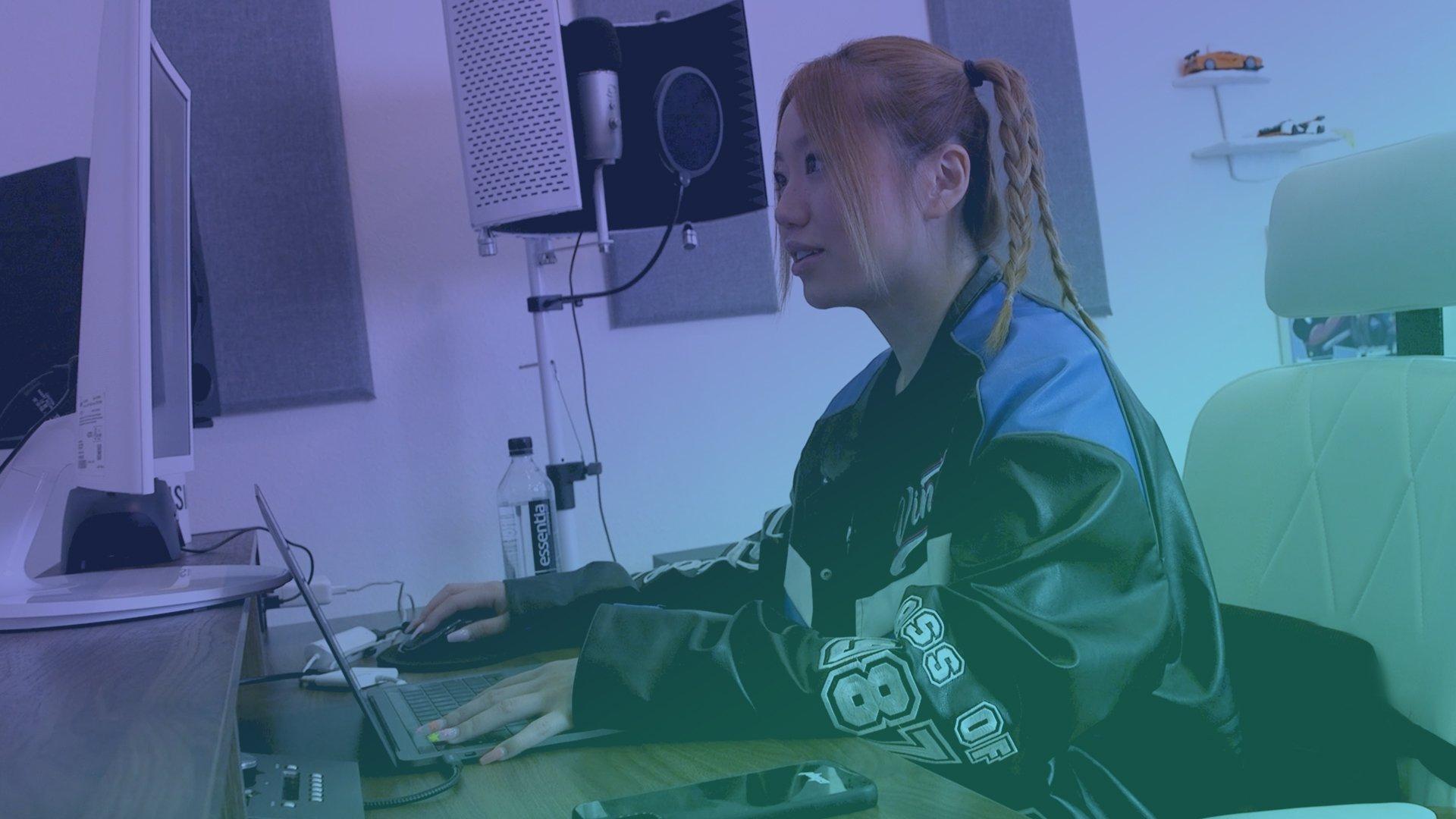The Recording Academy’s Producers & Engineers Wing and Songwriters & Composers Wing are joining forces to host “A Celebration of Craft.” Taking place Wednesday, Jan. 31, at the GRAMMY Museum in Downtown Los Angeles, the inaugural event, the first-ever joint GRAMMY Week event for the Academy’s craft Wings, will honor seven-time GRAMMY winner Leslie Ann Jones for her prolific work as a recording and mixing engineer and record producer. The event will also salute the year-round work of the Producers & Engineers and Songwriters & Composers Wings and shine a light on the people working behind the scenes to create the year’s best musical works, including this year’s Songwriter Of The Year nominees. The premiere celebration kicks off the official start of GRAMMY Week 2024, the Recording Academy’s weeklong celebration comprising official GRAMMY Week events honoring the music community in the lead-up to the 2024 GRAMMYs, officially known as the 66th GRAMMY Awards.
“A Celebration of Craft” also debuts during a major development for the production and songwriting fields at the annual GRAMMY Awards. For the first time ever, the Producer Of The Year, Non-Classical and Songwriter Of The Year, Non-Classical categories will be awarded in the General Field of the GRAMMY Awards at the 2024 GRAMMYs next month. The Recording Academy announced these significant additions last June after they were voted on and passed by the Recording Academy’s Board of Trustees last May; relocating these categories allows all GRAMMY voters to participate in the voting process for these non-genre-specific categories and recognize excellence in the important fields of producing and songwriting.
“Songwriting and producing are some of the fundamental building blocks of our industry — in addition to, of course, performing and recording,” Recording Academy CEO Harvey Mason jr. told GRAMMY.com about the GRAMMY category changes." “We feel this change is an opportunity to allow our full voting membership to participate … We are excited that our entire voting body will be able to contribute to such important categories like Songwriter Of The Year and Producer Of The Year. Again, these are such important parts of our Awards process. But bigger than that, they're an important part of the music ecosystem. Since these categories are not genre-specific, and they are across many different genres, we felt it was responsible to put them in the General Field so everyone could vote for these important awards.”
A recording and mixing engineer and record producer for more than 40 years, Leslie Ann Jones has held staff positions at ABC Recording Studios in Los Angeles, the Automatt Recording Studios in San Francisco, and Capitol Studios in Hollywood. Now at Skywalker Sound, she continues her career recording and mixing music for records, films, video games, and television, and producing records primarily in the classical genre. Over the course of her career, she has worked with artists from Herbie Hancock, the Kronos Quartet, Holly Near, and Michael Feinstein to Santana, Bobby McFerrin, Charlie Haden, BeBe & CeCe Winans, ConFunkShun, and many more.
The first woman Chair of the Recording Academy’s Board of Trustees (1999-2001), Jones is the recipient of seven GRAMMY Awards, including four for Best Engineered Album, Classical and one for Best Immersive Audio Album. She serves on the Advisory Board of Institute for the Musical Arts, the Board of Directors of the Game Audio Network Guild (G.A.N.G.), and she is an Artistic Advisor to the Technology and Applied Composition degree program at the San Francisco Conservatory of Music. Jones was also inducted into the NAMM TEC Hall of Fame in 2019 and is a Heyser lecturer. She was also the recipient of the 2022 G.A.N.G. Lifetime Achievement Award.
Jones chaired the committee that wrote “Recommendations for Hi-Resolution Music Production,” published by the Producers & Engineers Wing of the Recording Academy, and is also a member of the Library of Congress’ National Recording Preservation Board.
“I’m so excited for our Producers & Engineers and Songwriters & Composers Wings to come together for ‘A Celebration of Craft’ later this month,” Recording Academy CEO Harvey Mason jr. said in a statement. “Both Wings are a critical part of our mission at the Recording Academy to create spaces for music creators to thrive, and I look forward to joining with music people from both of these communities to kick off our GRAMMY Week celebrations.”
“From her decades-spanning recording career to her work as former Chair of the Recording Academy’s Board of Trustees, a co-chair of the P&E Wing, and much more, Leslie Ann Jones has always been committed to the music community and to excellence in recording,” said Maureen Droney, Vice President of the Producers & Engineers Wing, in a statement. “It’s a privilege to convene our national network of creatives and technicians to salute her at ‘A Celebration of Craft’ with the Songwriters & Composers Wing, an essential collaborator in our effort to recognize the people behind the music.”
“‘A Celebration of Craft’ will mark the first GRAMMY Week event for the Songwriters & Composers Wing since our Wing was founded in 2021, and we could not be more enthusiastic to come together with our community for an evening dedicated to celebrating their creativity,” said Susan Stewart, Managing Director of the Songwriters & Composers Wing. “We’re thrilled to co-host this event with our friends in the Producers & Engineers Wing and pay tribute to the diverse creative professions in our industry together.”
The 2024 GRAMMYs, officially known as the 66th GRAMMY Awards, will air live from the Crypto.com Arena in Los Angeles on Sunday, Feb. 4 (8 -11:30 p.m. LIVE ET/5-8:30 p.m. LIVE PT) on the CBS Television Network and will stream on Paramount+ (live and on demand for Paramount+ with SHOWTIME subscribers, or on demand for Paramount+ Essential subscribers the day after the special airs).
How To Watch The 2024 GRAMMYs Live: GRAMMY Nominations Announcement, Air Date, Red Carpet, Streaming Channel & More





